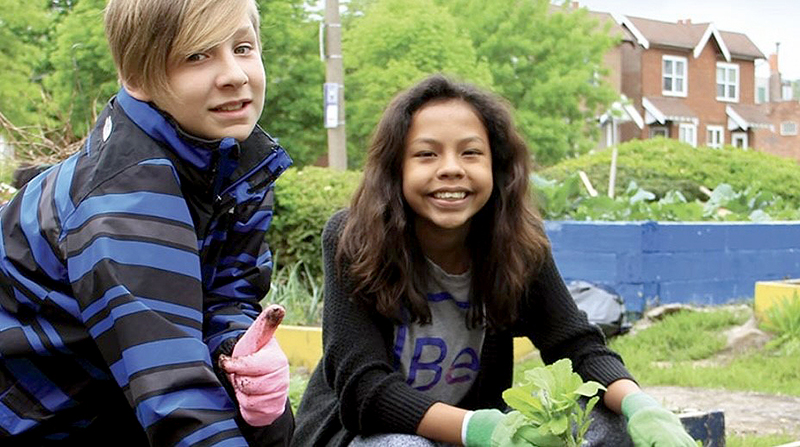Teens have a seemly boundless well of energy, creativity and imagination. Often that will lead them to any number of positive adventures or educational experiences. But sometimes, if misdirected, that can lead to decisions they may regret for years to come.
The Teen Outreach Program (TOP) at Temple University Harrisburg is designed to promote the healthy development of youth in grades six to 12 through a combination of weekly TOP club meetings, according to Link Martin, Director of Temple University Harrisburg. TOP includes an engaging, wide-ranging curriculum and teen-led Community Service Learning experiences.
“The Teen Outreach Program at Temple Harrisburg came about through our partnership with the state Department of Health. A couple of years ago they approached us and asked us if we would be interested in taking on the TOP program,” Martin said. “It was a new program and they wanted to roll it out in Pennsylvania to targeted school districts and community groups. We have a long-term relationship with the Department of Health on assisting them with programs so they came to us and said, ‘Would you take this on?’ We looked at the program and looked at the research and saw that it was evidence-based in terms of social and emotional growth and health.”
Temple University Harrisburg staff are trained in the TOP program and in turn train facilitators in communities throughout Pennsylvania, said Martin. The Harrisburg Campus holds a license with TOP’s developer, Wyman, and currently has 31 TOP clubs based at schools and youth-serving organizations around Pennsylvania, serving about 750 students.
“The program has been running for a couple of years. Since its inception we’ve received some foundation support to expand the program into different populations such as youth that have been involved with the criminal justice system — we’re working with Diakon Social Services on that,” he said. “We’re additionally seeking other funding sources to expand it to other communities beyond the state contract.”
Funding is used to implement the Wyman Teen Outreach Program (TOP) in TOP Club settings for middle and high school-age teens. TOP is a positive youth development (PYD) program designed to teach young people how to think, not what to think. TOP programming is implemented using Wyman’s trauma-informed curriculum that prepares teens for educational success, and life and leadership skills.
“The youths involved are brought together and meet as a club after school. There are a lot of different activities that the leaders can choose,” Martin said. “The program is focused on social and emotional learning and building the strengths of the youths in terms of making good decisions. At its heart, TOP is about helping young people avoid bad decisions, whether it’s drug activity or involvement in other illegal or harmful activities.”
The club activities “build a feeling of working together collaboratively with other youth toward a common goal,” Martin said.
“There is a strong community service component to the program where they pick a project within their community to work on. There is very good feedback from individuals who have participated in the program — they make good connections with other youth, they enforce positive behaviors among themselves and they feel more connected to their communities,” he said. “We’ve found that some of the youth have reported that they want to continue to do community service projects. They have told us that they learned things about their communities that they didn’t know about whether they were involved in food pantries and didn’t realize the need for the pantry’s services in their community or learning about conservation methods with those types of projects.”
According to Martin, Temple Harrisburg trains TOP facilitators statewide and monitors the clubs once they are established.
“TOP is the type of program that Temple does well. We’ve identified a program that is evidence-based, we do the training to make sure it’s implemented as intended and then we research and evaluate the results,” he said. “The impact of the program is that in those communities we are helping youth who may be at risk or at that stage in their lives where they can make some very bad decisions or make some very good decisions. The program reinforces that they have within themselves the ability to make the decisions that are healthy versus decisions that could lead them down a different path.”
There are tremendous stresses on young people today, said Martin.
“What we want to do is move the TOP program into additional targeted youth groups, such as those who have been involved with the criminal justice system and youths whose families, perhaps their parents, are either incarcerated or involved with the criminal justice system,” he said. “We want to expand the program to look at these other youth populations to see if it has a comparable positive impact as it does on the general youth population. We will be continuing the state contract and continuing to seek out other funding sources to maintain TOP in Pennsylvania and expand it.”

